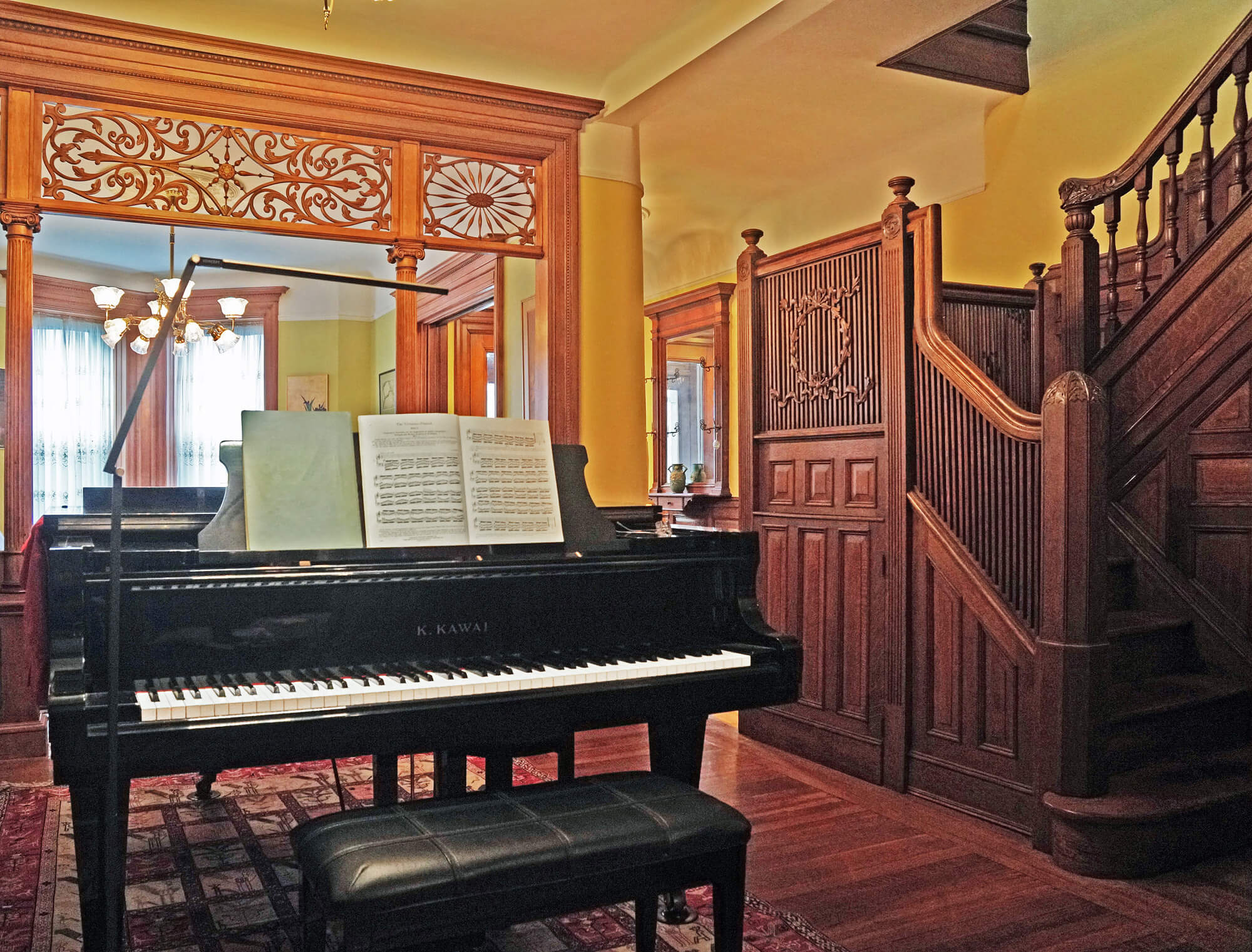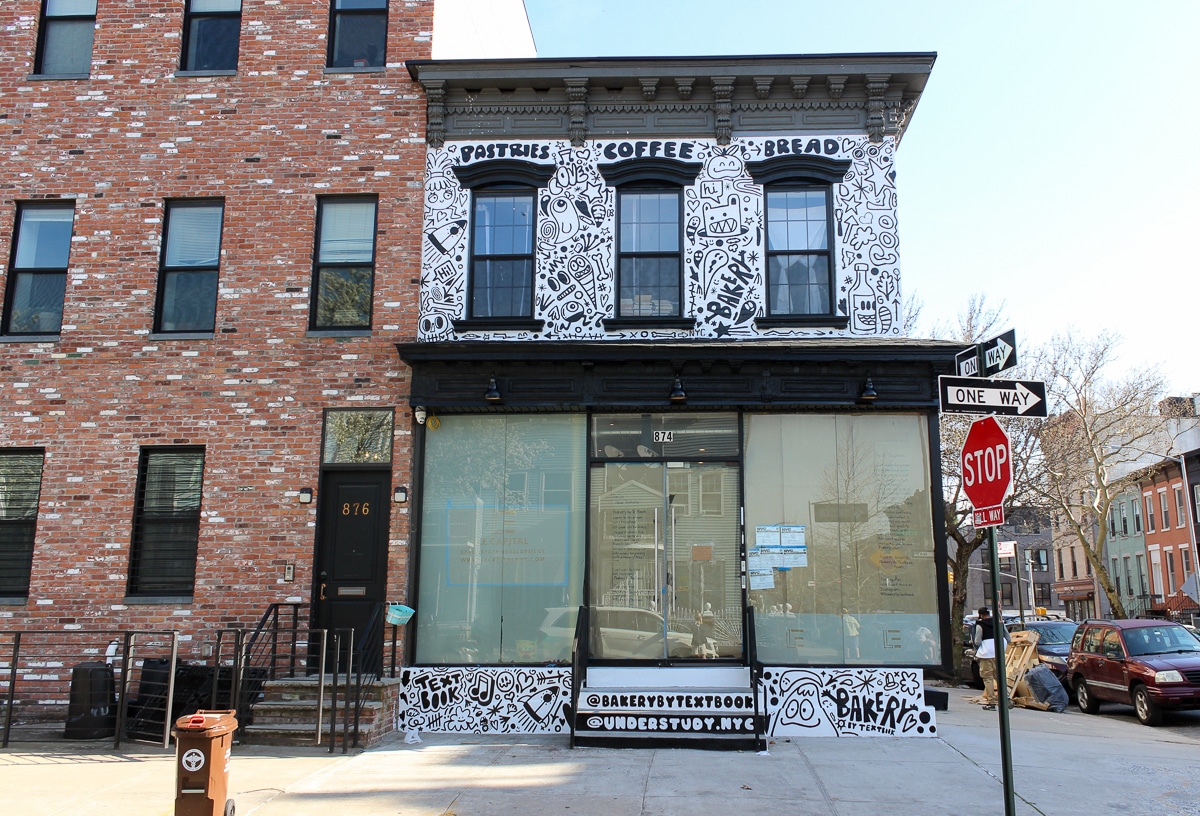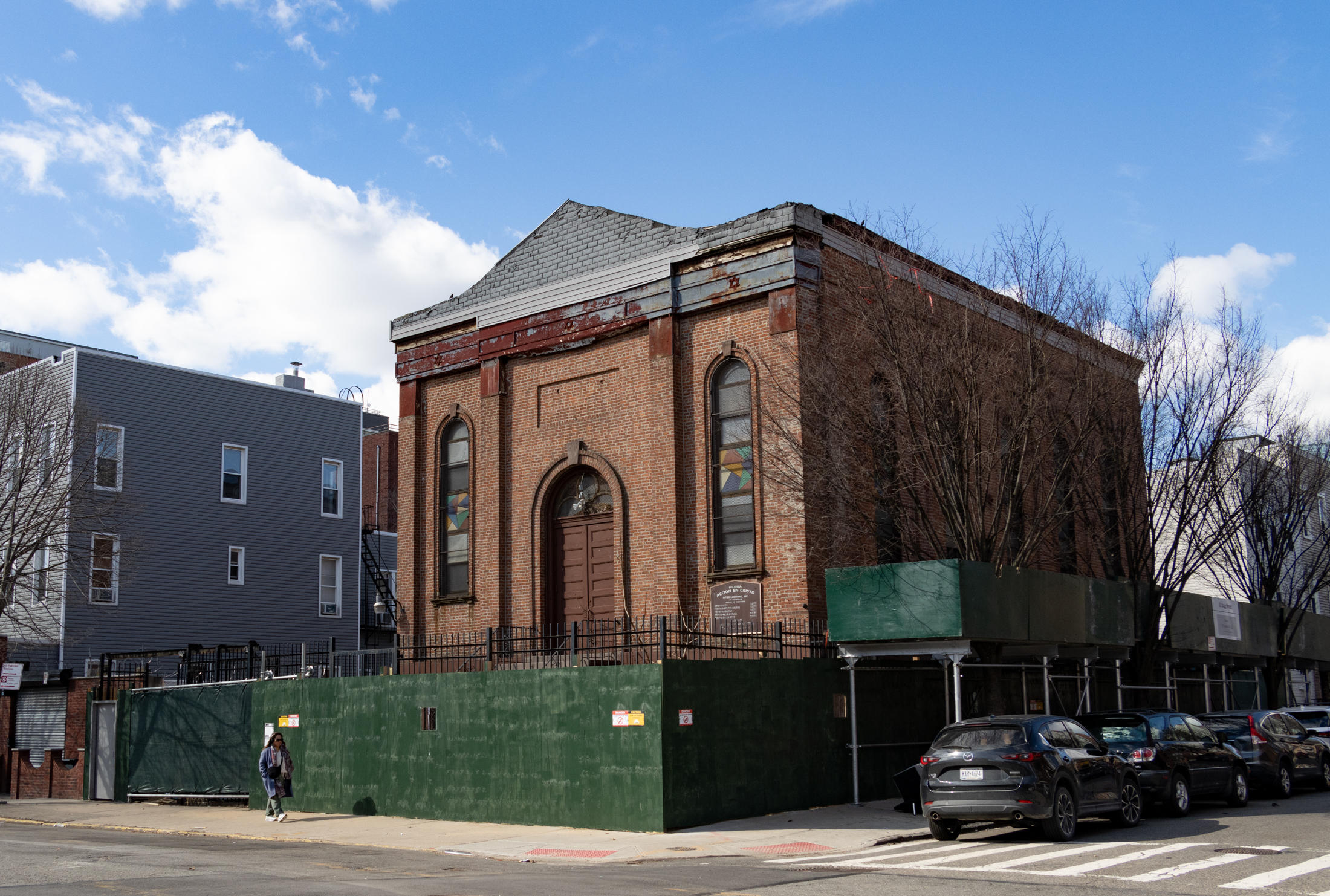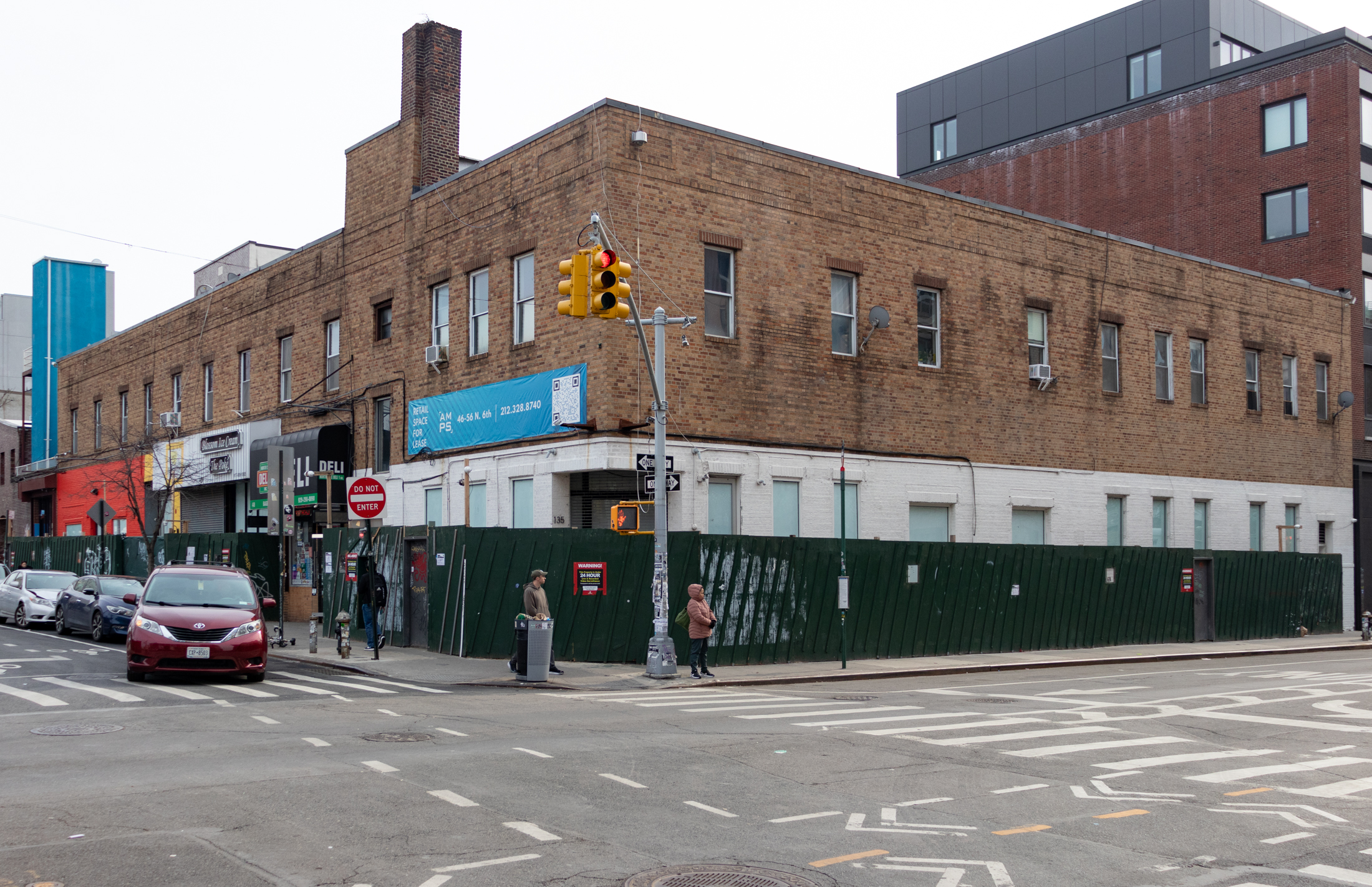Walkabout: America’s Best Bad Actor, Corse Payton, Part 1
Read Part 2 of this story. Does anyone remember the Saturday Night Live sketches by Jon Lovitz featuring his “Master Thespian”? Mr. Thespian was an outrageous ham, over enunciating everything, indicating broadly, affecting a bad upper-crust accent, and in general, being everything that anyone could possibly want in a bad actor, all wrapped up in…

Read Part 2 of this story.
Does anyone remember the Saturday Night Live sketches by Jon Lovitz featuring his “Master Thespian”? Mr. Thespian was an outrageous ham, over enunciating everything, indicating broadly, affecting a bad upper-crust accent, and in general, being everything that anyone could possibly want in a bad actor, all wrapped up in a dapper smoking jacket. Corse Payton was the living embodiment of the Master Thespian.
Between 1900 and 1915, he operated his own theater in Brooklyn, called Corse Payton’s Lee Avenue Theater, in Williamsburg. He made a career out of bad acting, and probably cut a fine figure in a smoking jacket as well. He would be the first to tell you so, too.
But backstage, the ultimate ACT-tor was a brilliant business mind and a keen observer of popular culture. This is his story. Like many contemporary Brooklyn stories, it begins, most auspiciously, on a farm in Iowa.
Corse Payton was destined for show biz. It was inevitable, and right there in his name. What else could someone named “Corse Payton” possibly be?
He was born in Centerville, Iowa in 1866, and named “Corse” by his father, Joseph Payton, who had served in the Union Army during the Civil War under General John M. Corse. Corse himself would one day say, “Yes, it is a pretty good name, because you never get your mail mixed up with that of anyone else.”
He was educated in the local school, and according to an incredibly gushy biography by one Gertrude Andrews that reads like a modern teen magazine fan page, he was the star of his class, in both oratory and dramatics, and in the fine art of getting in trouble.
One chapter of his story tells of a childhood attempt to recreate a Civil War battle, during which he almost blew himself, and the town up. At the age of fourteen he ran off to join a traveling fair that was passing through Centerville.
Again, according to his biographer, it was here, at the fair, that he had a religious awakening, and “dedicated his life to Thespis,” often entertaining fair goers with song and dance, and anything dramatic that could land him some money.
After a few weeks, his father finally found him, father and son meeting each other’s gaze as young Payton was in the middle of entertaining a crowd with his already famous black-faced minstrel act. Embarrassed, he cleaned his face off, and went to the train station with his father.
When it came time to pay for the tickets, Corse pulled out a wad of cash, and paid for the fares. His father couldn’t believe that someone could make a decent living from singing and dancing. He had no idea what his son was capable of.
Corse Payton was back in Centerville, Iowa, bored out of his skull. When another travelling circus came into town, he ran off again, this time taking a friend. They were out on the road for five months. During that time, they were on a train when it was held up by the Jesse James Gang, they watched a runaway lion terrorize a crowd, and in general had a great time.
It was every boy’s dream, and young Payton ate it up. Eventually, though, they returned home, settling down for brief periods, still looking for something new and exciting to do. Iowa just didn’t have enough going on.
Corse was not the only Payton to have been bitten by the acting bug. His older brother, Senter, had become an actor, as had cousins and other family members. They formed a troupe, and travelled throughout Iowa, Nebraska and Kansas.
They charged ten, twenty, and thirty cents for admission, and took care of all of the business and technical needs of a theater troupe.
It was here that Payton learned about being a business manager, producer, director, stage manager, prop manager, stage hand, and costume designer, as well as an actor. All of this experience would come into play when they decided to go for the big time: New York City.
The troupe was not interested in Shakespeare or the serious dramas of the day, they aimed to broadly entertain and make their audiences laugh or cry. They put on romantic comedies, slapstick comedies, sentimental morality tales, vaudeville scenes, and excerpts from longer plays.
Corse Payton had the perfect countenance and body for the comedy of the day. He had a handsome, open face, with huge piercing eyes that could express an exaggerated emotion into the back row.
Unfortunately, everyone was not enamored of his expressions, and once on the road, he and his older brother, Senter, grew increasingly intolerant of each other, and eventually, Senter left the troupe. It was now being run by Corse’s sister and brother-in-law.
After a while, Payton decided to cut the family ties and go out on his own. He became partners with a man named F. E. Spooner. At the end of their first season, Payton had $2,500 profit burning a hole in his pocket, and he decided to check out New York City.
According to him, he arrived, and immediately thought he would be taking the theater world by storm. Dressed in grand sartorial splendor, in suits of the largest checked fabric he could find, a loud and intricately tied tie, diamond stickpin and cufflinks, and a jaunty top hat and walking stick, he wandered throughout Manhattan and Brooklyn’s theater districts, looking for theaters to run his shows, or hire him as an actor.
He wined and dined theater owners, managers and anyone else he thought could get him a gig. He was the theatrical toast of New York, spending evenings on the town with all manner of theater folk, high and low, both honest and those quite shady.
They couldn’t get enough of the Iowa boy in his fancy clothes, and the open wallet, until one day Corse Payton woke up to find himself flat broke. The party was over. The managers, agents, and theater owners he had wined and dined wouldn’t see him, everyone knew he had no money.
Finally, he met with a manager who told him it was time for him to go back west where he came from. He just happened to need a troupe in Texas, and he gave Corse an advance, enough money to go to Texas, and Corse Payton was on his way.
Texas would prove to be fortuitous; because it was there that he met his wife, Etta Reed, an actress originally from Ohio. She was a beautiful Midwestern girl, like the girls he had grown up with, and it was love at first sight for both of them.
She would become his wife and his inspiration. They married in 1890, just in time for her to be his leading lady in Corse Payton’s Comedy Company. Still sticking with the entry price of ten, twenty and thirty cents a head, the company was soon travelling around with its own boxcar filled with sets, costumes, and props, doing quite well.
Corse was able to buy several theaters, and built one in his hometown of Centerville, Iowa. It was time for the prodigal to come home to his parents, once again.
According to his biography, his performance did not go as planned. Over the years, his father had become the sheriff of Centerville and the county. He still didn’t understand how his son could make a living from being an actor, but he was still proud of his boy’s success.
The night of the big performance in the new Centerville Theater, Corse was as nervous as could be. His parents were both in the house, as were family, childhood friends, teachers, and neighbors.
His father, badge on his chest, had gone up and down the aisles before the performance, talking to people. It was nerve wracking. Everything had to be perfect, and the performance had to soar higher than any of their performances had ever soared before.
The play was a popular comedy, with laughs from the very first scenes. The overture played, the curtain came up, and the play began. The actors delivered their lines, but where most audiences usually burst into laughter and applause, there was only silence.
Thrown off a bit, they continued the play, with no better results. The actors eagerly awaited the arrival of Corse Payton’s character; he, of course had the male lead, and knew that once the hometown hero arrived, the audience would come to life.
Corse came out and delivered his first lines. Usually, they would send audiences into peals of laughter and thunderous applause. It was silent. Corse was horrified. He delivered more lines, guaranteed to make the dead laugh, but nothing.
He could see his audience just staring at him. It was unbearable. After the scene was over, he ran off stage to his dressing room in shock. He was awful, he thought. In more modern parlance, he sucked, big time. His parents, his town, his wife, everyone would now knew him to be a total failure.
Somehow, with the support of his wife, who was his romantic lead in the play, and his fellow actors, they all managed to get through the entire play.
At no time was there audible laughter, no spontaneous applause, no peals of delight, or sobs of happiness or even sorrow. The audience sat there like Episcopalians at a camp revival meeting, and only at the end was there polite applause. Corse Payton was absolutely mortified.
He knew his parents were coming backstage, and he dreaded it. He couldn’t face them, especially his father. The great actor was a failure in his own home town. He began to pace in great agitation, and all of a sudden he could hear his father in the hallway, and then his parents were in the room.
His father, the sheriff, came up to him and clapped him soundly on the back. “How about that audience?” his father announced. “It was big.” Corse said lamely. “Damn right it was big,” his father said with great pride. “And did you ever see an audience more well behaved?”
“I just made up my mind that we weren’t going to have any of that damned monkey-doodle business with this show,” Joseph Payton said. “They can’t treat my son disrespectfully, like they do some of the show-folk who come here. Not as long as I’m sheriff of Appanoose County.
And I told ‘em so, too, by Gad. I told ‘em that the first mother’s son of ‘em that dared make a peep, I’d run ‘em in quicker than lightning. I made up my mind to have order tonight if we never had it again in this town, and I had it.”
You can’t make this stuff up. Well, actually, maybe you can. The rest of the tale of the Best Bad Actor in the World will continue. Corse Payton takes Brooklyn by storm, with his Williamsburg theater, run with great success for over fifteen years. The Gish sisters, Mary Pickford, and other stars of the early cinema and theater all got their start here. It’s all larger than life, and the curtain goes up on Thursday.











Loved it! Can you imagine that poor man- “well-behaved!” What a blow to the ego. Can’t wait to read more.